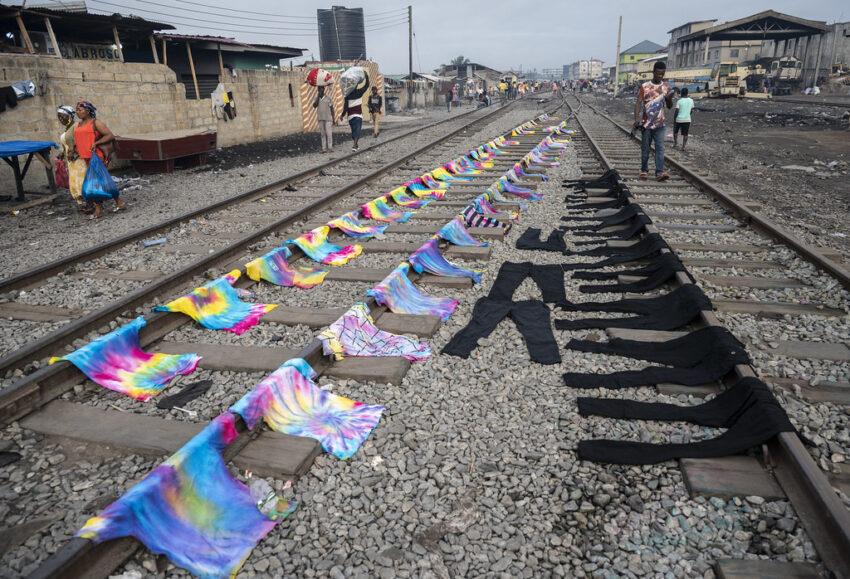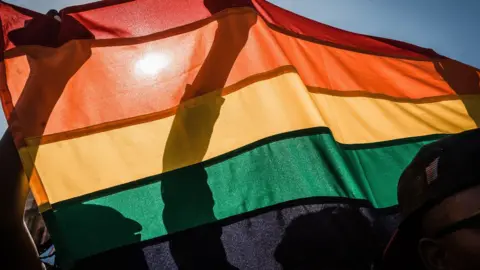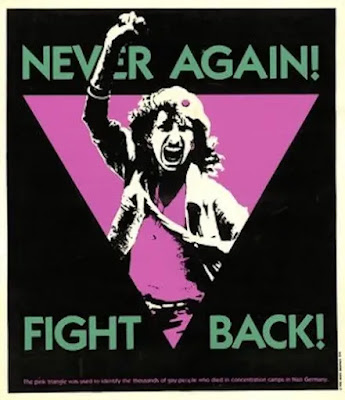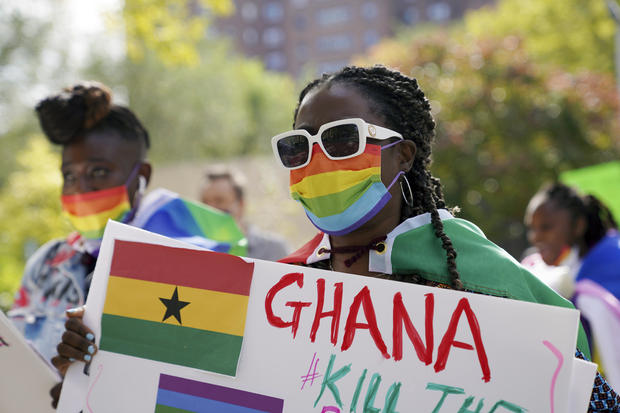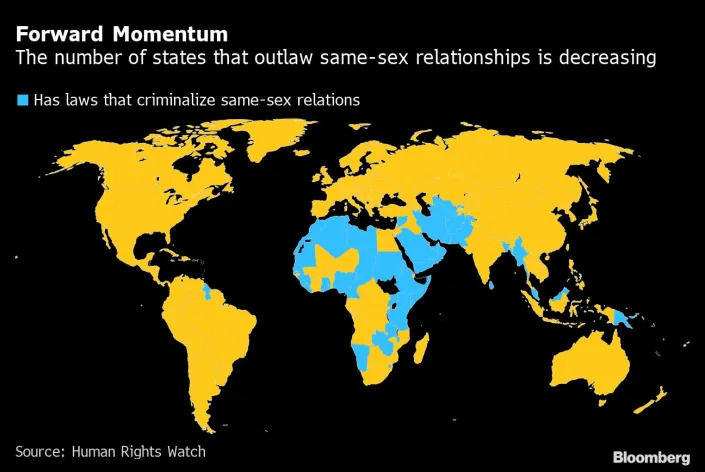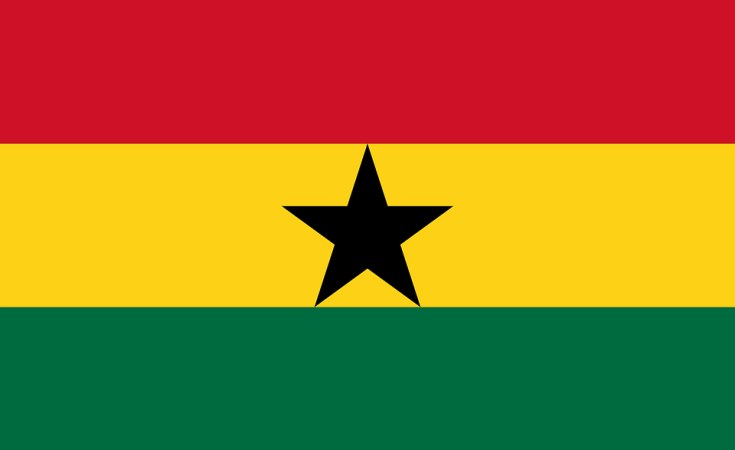
Pixabay
Ghana national flag
28 JULY 2021
Deutsche Welle (Bonn)By Isaac Kaledzi
The proposed bill could see LGBTQ community members imprisoned between five to 10 years for identifying or advocating for their rights.
Ghana's laws already criminalize gay sex by forbidding "unnatural carnal knowledge".
Now West African country wants to go a step further in its efforts to outlaw the LGBTQ community.
If the bill is passed, people of the same sex who engage in sexual activity could be fined or jailed for between three to five years.
The law would also make it a crime to be LGBTQ -- it would be punishable by five years in prison for any person to identify as lesbian, gay, transgender, transsexual, queer, pansexual or non-binary (someone who doesn't identify as male or female).
The bill, entitled "The Promotion of Proper Human Sexual Rights and Ghanaian Family Values Bill 2021" was submitted to Ghana's parliament in June.
General support for anti-gay bill
It enjoys cross-party support, with Ghana's parliamentary speaker, Alban Bagbin openly backing the proposed law.
It is widely expected that the bill will win enough votes to become law in Ghana, a deeply religious society where homophobic persecution is widespread.
The bill also has strong support among Ghanaians.
Even if the bill does end up being thrown out, it has already endangered the lives of LGBTQ people "with the discussions that it fuels and the homophobia that it will empower," said Nana Yaa Agyepong, a member of Silent Majority Ghana, a transnational queer feminist group.
"This is something that we cannot have because we have Ghanaians that deserve to live safely and at peace at home and not forced into exile," she told DW in Accra.
No room for gay rights activism
Advocating for LGBQ rights would also be illegal under the bill, with activists facing jail sentences of between five and ten years.
Rights activist Agyepong sees this as worrying as it "squashes conversations and dissents around the bill so people would not be able to do public education or media appearances or even on social media," she told DW.
One of the eight members of parliament who proposed the bill, Sam George, said he was influenced by what he saw as the "growing advocacy" and "propaganda" of Ghana's LGBTQ community.
"We are just bringing our laws up to speed to ensure that so long as our national position has not changed and still homosexuality is an illegality, let's make the laws reflective of that," George told DW during an interview at his office in the capital, Accra.
He says there is no room for negotiation in the fight to curbing all forms of LGBTQ activism.
"Our constitution says rights can be curtailed so long as they pose existential threat to the public safety, public health and public moral," he told DW.
"This act of homosexuality poses a public health challenge and a public moral challenge."
Bill includes discredited conversion therapy
The bill would also allow for conversion therapy, also sometimes called 'gay cure therapy', which tries to change people's sexual orientation or gender identity.
A number of public health bodies, including Britain's National Health Service, have warned that conversion therapy is "unethical and potentially harmful." Germany has banned the practice for minors.
Despite the bill's general support, some Ghanaians are calling for review of the document before it gets put to a parliamentary vote.
Human rights lawyer and member of parliament Francis-Xavier Sosu, for one, has concerns.
"You can see for a fact that it has some challenges. Challenges in terms of how to criminalize values and culture of people. Challenges with the kind of sentence regime it seeks to impose particularly at a time that we have all complained about our prisons being choked," Sosu told reporters in parliament house in Accra.
The draft bill comes on the back of several recent crackdowns on Ghana's LGBTQ community.
Rights activists attending a workshop in the city of Ho, south of Ghana, were arrested in May in a high-profile police bust. Those arrested were attending a training for activists and paralegals when supporting LGBTQ people. They were released after more than three weeks in detention, but still face prosecution for holding an "unlawful gathering" and "advocating LGBTQ activities".
The office of the organization LGBT+ Rights Ghana was also raided and closed earlier this year.
Ghana's move to further criminalize LGBTQ people is in contrast to several other African countries, which have decriminalized homosexuality, such as Rwanda, Angola, Botswana and South Africa.
We’ll help to fine-tune anti-LGBTQI Bill – Pentecostal and ...
2021-07-28 · The Ghana Pentecostal and Charismatic Council (GPCC) says it is in full support of the new private members’ bill that seeks to explicitly criminalize LGBTQI activities in the country. Related Articles. Kumasi: Police identify 24-yr-old lady shot dead by men on motorbike. 2 weeks ago. Delta strain detected in Ghana
(PDF) Homosexuality, Politics and Pentecostal Nationalism ...
ADRIAAN VAN KLINKEN Homosexuality, Politics and Pentecostal Nationalism in Zambia ABSTRACT Building upon debates about the politics of nationalism and sexuality in post-colonial Africa, this article highlights the role of religion in shaping nationalist ideologies that seek to regulate homosexuality. It specifically focuses on Pentecostal Christianity in Zambia, where the constitutional ...
Pentecostals and the spiritual war against coronavirus in ...
(PDF) A missional study of Ghanaian Pentecostal churches ...
https://www.researchgate.net/publication/278548236_A_missional_study_of...2015-06-11 · According to the tenet of the Apostolic Church, Ghana
GPCC – Ghana
2020-07-31 · The Ghana Pentecostal and Charismatic Council (GPCC) has undergone a dynamic transformation over the years, as the leading mouth-piece for Penteco-Charismatics in Ghana. From a humble beginning of four (4) members at its inception in 1969, the Council now boasts of over two hundred (200) member churches with each individual church
Sacred Spaces and the Pentecostal Charismatic Churches in ...
For the Charismatic Churches in Ghana, Gifford posits that “there has also been a remarkable explosion of these new autonomous Pentecostal Churches. The word ‘Charismatic’ is used to distinguish them from the churches of recognized Pentecostal denominations like the Assemblies of God church”. These churches according to
PENTECOSTALISM IN GHANA: AN AFRICAN REFORMATION
The Pentecostal and Charismatic movements, of which they served as the precursors, and which were initially on the fringes of society, has now moved into the center, crossing into every branch of the Church in Ghana. They have given a new face of Christianity to the country, which is outwardly expressive, inwardly liberating, and which provides adequate identity of a faith that can be truly ...
AFRICA S NEW BIG MAN RULE? PENTECOSTALISM AND …
https://gvpt.umd.edu/sites/gvpt.umd.edu/files/pubs/McCauley_Africa… · PDF filepre-colonial norms, post-colonial institutions, and weak states created *John F. McCauley (mccauley@umd.edu) is Assistant Professor of Government and Politics at the University of Maryland, USA. An earlier version of the article was presented at the Nigeria Centre for Pentecostal
Decolonising Western missionaries’ mission theology and ...
www.scielo.org.za/pdf/ids/v51n1/15.pdf · PDF fileforces of colonialism that perpetuates the subjugation and the exploitation of our minds, bodies, and land. Its ultimate purpose is to overturn the colonial structure and realise indigenous liberation (Waziyatawin & Yellow Bird 2012). It engages with imperialism and colonialism at every level. This entails the corporate and national takeover of things and institutions under colonial control ...
